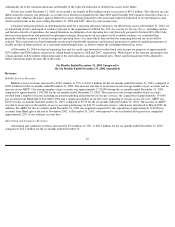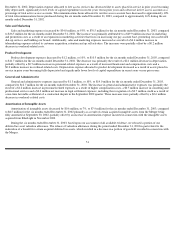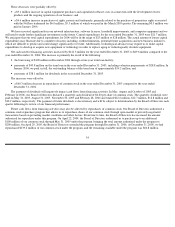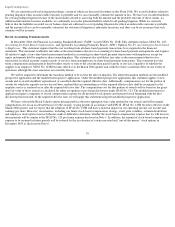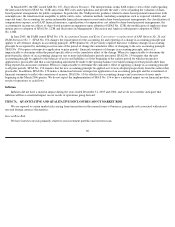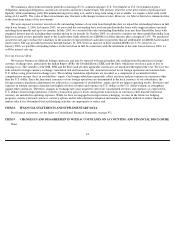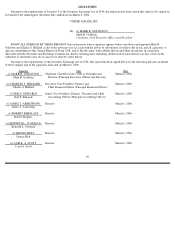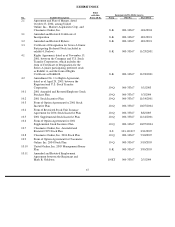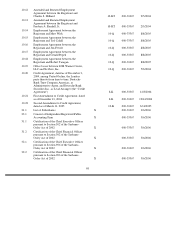Classmates.com 2005 Annual Report Download - page 60
Download and view the complete annual report
Please find page 60 of the 2005 Classmates.com annual report below. You can navigate through the pages in the report by either clicking on the pages listed below, or by using the keyword search tool below to find specific information within the annual report.
Legal Contingencies
We are currently involved in legal proceedings, certain of which are discussed elsewhere in this Form 10-K. We record liabilities related to
pending litigation when an unfavorable outcome is probable and we can reasonably estimate the amount of loss. We have not recorded liabilities
for certain pending litigation because of the uncertainties related to assessing both the amount and the probable outcome of those claims. As
additional information becomes available, we continually assess the potential liability related to all pending litigation. While we currently
believe that the liabilities recorded on our balance sheet are sufficient to cover pending litigation for which an unfavorable outcome is probable
and the amount of loss can be reasonably estimated, the outcome of litigation is inherently uncertain, and there can be no assurance that such
estimates will be accurate.
Recent Accounting Pronouncements
In December 2004, the Financial Accounting Standards Board (“FASB”) issued SFAS No. 123R. This statement replaces SFAS No. 123,
Accounting for Stock
-Based Compensation , and supersedes Accounting Principles Board (“APB”) Opinion No. 25, Accounting for Stock Issued
to Employees . This statement requires that the cost resulting from all share-based payment transactions be recognized in the financial
statements. This statement establishes fair value as the measurement objective in accounting for share-based payment arrangements and requires
all entities to apply a fair-value-based measurement method in accounting for share-based payment transactions with employees except for
equity instruments held by employee share ownership plans. This statement also establishes fair value as the measurement objective for
transactions in which an entity acquires goods or services from nonemployees in share-based payment transactions. This statement uses the
terms compensation and payment in their broadest senses to refer to the consideration paid for goods or services, regardless of whether the
supplier is an employee. SFAS No. 123R becomes effective in the March 2006 quarter and is likely to have a material effect on our results of
operations although the exact amount is not currently known.
We will be required to determine the transition method to be used at the date of adoption. The allowed transition methods are the modified
prospective application and the modified retrospective application. Under the modified prospective application, this statement applies to new
awards and to awards modified, repurchased, or cancelled after the required effective date. Additionally, compensation cost for the portion of
awards for which the requisite service has not been rendered that are outstanding as of the required effective date shall be recognized as the
requisite service is rendered on or after the required effective date. The compensation cost for that portion of awards will be based on the grant-
date fair value of those awards as calculated for either recognition or pro forma disclosures under SFAS No. 123. The modified retrospective
application requires companies to record compensation expense for all unvested stock options and restricted stock beginning with the first
disclosed period restated. At the required effective date, we will apply this statement using the modified prospective application.
We have selected the Black-Scholes option-pricing model as the most appropriate fair-value method for our awards and will recognize
compensation cost on an accelerated basis over the awards’
vesting periods in accordance with FIN 28. SFAS No. 123R becomes effective in the
March 2006 quarter, and we expect that the adoption of SFAS No. 123R will have a material impact on our operating income, net income and
earnings per share. However, uncertainties, including our future stock-based compensation strategy, stock price volatility, estimated forfeitures
and employee stock option exercise behavior, make it difficult to determine whether the stock-based compensation expense that we will incur in
future periods will be similar to the SFAS No. 123 pro forma expense disclosed in Note 1. In addition, the amount of stock-based compensation
expense to be incurred in future periods will be reduced by the acceleration of certain unvested and “out-of-the-money” stock options in
December 2005 as disclosed in Note 8.
59


